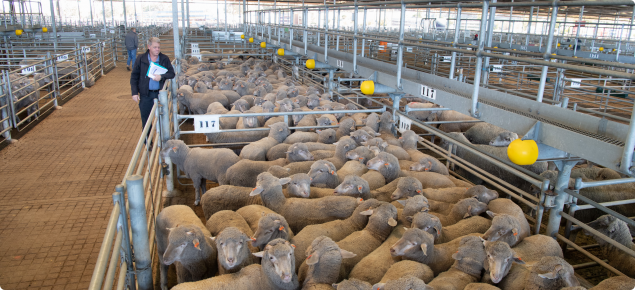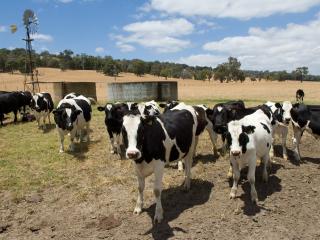The original Bill was amended in light of the recommendations of the Legislative Council’s Standing Committee on Legislation.
Why was the Act amended?
The Act was amended to provide for the making of regulations giving effect to the Australian Animal Welfare Standards and Guidelines (Standards and Guidelines) for livestock.
The national Standards set mandatory requirements for the humane treatment of animals. The Guidelines advise on recommended practices but are not mandatory.
Western Australia is now the only jurisdiction in Australia that has not yet implemented the Standards and Guidelines for Land Transport of Livestock (2012). The changes to the Act will bring Western Australia into line with other jurisdictions and allow industry to operate across Australia with confidence under consistent and clear legislation.
While Australian farmers have always been aware of their responsibilities for animal health and welfare, consumers are increasingly aware of animal welfare and seeking to understand how farmers are managing their stock consistent with appropriate animal welfare practices.
The implementation of national welfare Standards underpins access to overseas markets and enhances Australia’s reputation as a supplier of high quality animal products.
What are national Standards and Guidelines?
Standards are the legal requirements for livestock welfare and use the word ‘must’. The Standards provide the basis for developing and implementing consistent legislation and enforcement across Australia. The Standards are, in large part, based on recommendations in the National Model Codes of Practice.
Guidelines are the recommended practices to achieve good livestock welfare outcomes. Guidelines use the word ‘should’ and are designed to complement the standards.
Non-compliance with Standards will be a breach of the regulations and penalties may be applied, while a breach of the Guidelines will not constitute an offence under law.
The development of Standards and Guidelines includes a process of national consultation with stakeholders, which provides an opportunity for all members of the public and industry to comment on the draft Standards and Guidelines before they are finalised.
The current endorsed Standards and Guidelines are:
• Land Transport (2012)
• Sheep (2016)
• Cattle (2016)
• Animals in Saleyards and Depots (2018)
All states and territories except WA have implemented the Land Transport Standards. The Sheep and Cattle Standards have been implemented in South Australia and New South Wales, and all jurisdictions are considering the implementation of the Standards and Guidelines on Saleyards and Depots. Find out more about the Australian Animal Welfare Standards and Guidelines online.
What happens now?
Although the Act has been amended, there will not be any immediate changes to the way the department enforces the Act or to what constitutes an offence under the Act. More information is available in the Frequently Asked Questions document.
The department has started the process of drafting regulations that will give effect to the Standards and Guidelines. Consistent with requirements for the development of regulatory programs, the department will consult with stakeholders.
Consultation is expected to start shortly. This process will include direct engagement with key stakeholders, and broader consultation with industry. If you would like to get involved in the consultation process and have your say, send an email to animal.welfare@dpird.wa.gov.au so you can be kept updated.




